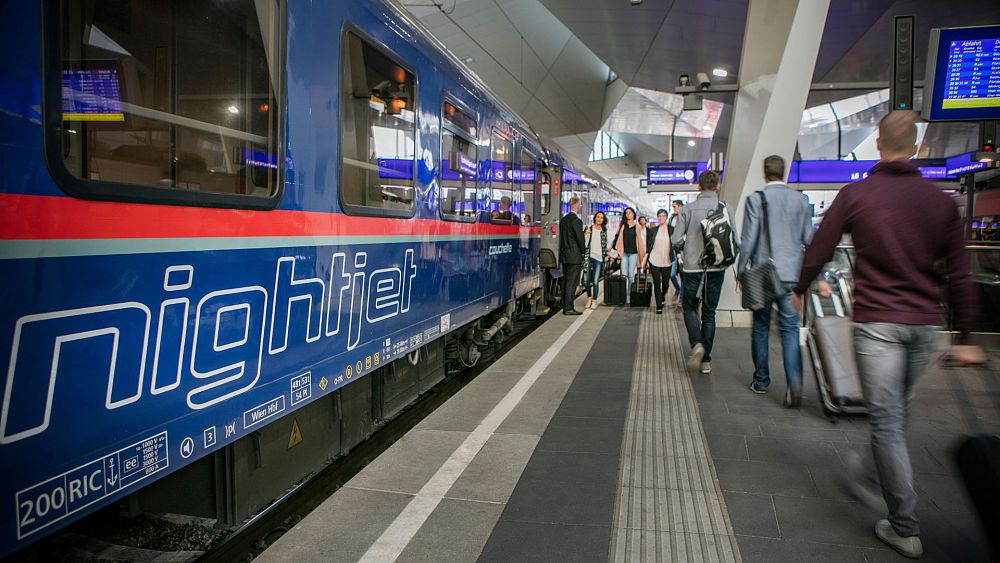You’ll soon be able to fall asleep in Paris and wake up in Berlin thanks to the return of Austrian rail operator ÖBB’s night train service.
After a nine-year break, the Nightjet sleeper service will relaunch on 11 December from Berlin, with a return journey the following day.
Starting with three trips per week, it will offer a daily service from autumn 2024.
The night train will stop at Strasbourg in France and Mannheim, Erfurt and Halle in Germany along the way.
Austria’s ÖBB is leading Europe’s night train revival
In 2021, train operator ÖBB launched a new Nightjet sleeper route between Vienna and Paris via Salzburg and Munich, joining its existing Brussels-Vienna service.
In December, Nightjet will also launch a service linking Brussels and Liège to Berlin.
The sleeper train will depart three times a week on Tuesdays, Thursdays and Saturdays. Following the same route as the existing service to Vienna as far as Mannheim, it will continue on to Frankfurt and Berlin.
The new service from Berlin to Paris is expected to depart at 8.18 pm and arrive at 10:24 am - a journey of around 14 hours. The return trip will leave Paris at 7:12 pm and arrive in Berlin at 8.26 am, according to a timetable posted on X (formerly Twitter) by TGV X.
ÖBB additionally extended its route between Vienna/Munich and Milan to reach Genoa and La Spezia in Italy. It has promised further connections to Austria, Germany and Italy in 2024.
Rail travel between France and Germany is ramping up
Earlier this year, France and Germany’s national rail operators announced another new train route between Paris and Berlin that is due to start running in 2024.
Currently, a trip between the two capital cities requires travellers to change at a separate station such as Cologne or Frankfurt. The new high-speed link would allow passengers to make the direct journey in around seven hours.
This summer, the two countries further encouraged train travel by releasing thousands of free cross border tickets for young people.
By the end of the year, Germany’s Deutsche Bahn (DB) and Austria’s ÖBB say they expect about 40 per cent more passengers than they saw five years ago.


